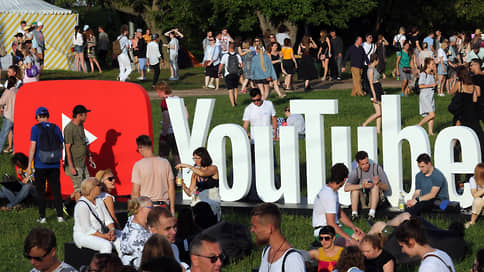Cats without news – Newspaper Kommersant No. 172 (7373) of 09/19/2022
[ad_1]

Russians began to spend more time on YouTube: the figure began to grow in July and August, follows from Mediascope estimates. Experts attribute the trend to the desire of some Internet users to “isolate themselves from the news agenda.” Also on YouTube they are looking for old films that have disappeared from Russian online cinemas. It flows into the service and the audience of Instagram (the activities of the head Meta for maintaining the service in Russia are recognized as extremist and prohibited) and TikTok, which is limited in functionality. Despite the claims of the Russian authorities to content on YouTube, experts now consider the likelihood of its blocking in the country low due to the lack of full-fledged alternatives.
“Kommersant” got acquainted with the data published on the Mediascope website (.pdf), according to which Russians began to spend more time on YouTube in July and August. Since the beginning of the year, the indicator has remained stable and amounted to 84 minutes (85 minutes in May). In July, the average video viewing time on YouTube increased to 87 minutes, and in August to 88 minutes (we took into account the data of Internet users over 12 years old across Russia on desktop and mobile devices). Data for September is not yet available.
Coverage (the percentage of people from the population of the Russian Federation who visit the service at least once a day) of YouTube remained almost unchanged compared to previous months, amounting to 39% in July and August. An indicator higher (40%) was observed only in March, immediately after the outbreak of hostilities in Ukraine. However, year-on-year coverage increased: in August 2022 it amounted to 48 million people against 41.3 million people in August 2021. In terms of coverage for August, according to Mediascope, YouTube ranked fifth among Internet resources, behind WhatsApp, Yandex, Google and VKontakte. Rutube and VK Video did not respond to inquiries about the dynamics of indicators.
Telecom Daily CEO Denis Kuskov believes that the increase in time on YouTube is due to “escapism in society and news fatigue.”
“People are looking for content that does not deal with the political and military situation, and there are fewer entertainment programs on TV. There is a lot of such content on YouTube,” the expert explains. Based on the indicators, it can be assumed, he adds, that regular users spend more time in the service, that is, a new audience has not appeared.
The amount of time on YouTube may also reflect limitations in other types of entertainment: the absence of big Hollywood movie premieres and the removal of old films and series from online cinema libraries (see “Kommersant” on August 18), notes Denis Kuskov: “If people they don’t find it in online cinemas, they look for it either in torrents or on YouTube.” However, the general director of the Internet Video Association (which unites ivi, Okko, Start, etc.) Alexey Byrdin does not agree with this: “People look for old films in search engines and find them on specialized sites.”
The increase in YouTube watch time, according to Mr. Byrdin, is caused, among other things, by the blocking of Instagram and Facebook and restrictions on publications in TikTok: “YouTube has a similar format for short videos.”
Not everyone uses VPN, that is, part of the population has freed up time due to the blocking of a number of social networks, which is redistributed to other channels, including YouTube, agrees Irina Edemskaya, Research Director of OMD OM Group.
Since the beginning of hostilities in Ukraine, the authorities discussed possible blocking of YouTube. This, in particular, was reported by RIA Novosti with reference to a source close to Roskomnadzor. However, although Russian courts fine Google (which owns YouTube) for failing to remove inaccurate information about the military operation from the video service (on September 9, the recovery of 21.7 billion rubles of turnover fine from Google was approved), the likelihood of an extreme measure of impact on the resource through blocking is now small, believes CEO of the Internet Research Institute Karen Kazarian: “There are no full-fledged alternatives for YouTube, and blocking it can lead to unforeseen consequences for other Google services – serious failures can occur.”
[ad_2]
Source link





